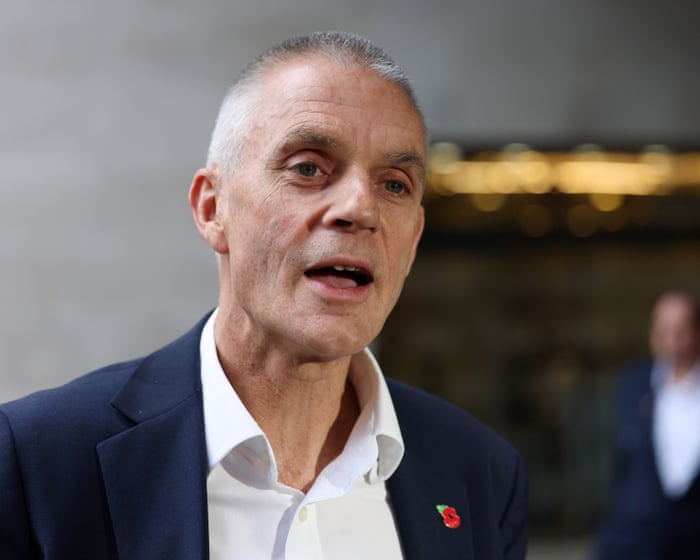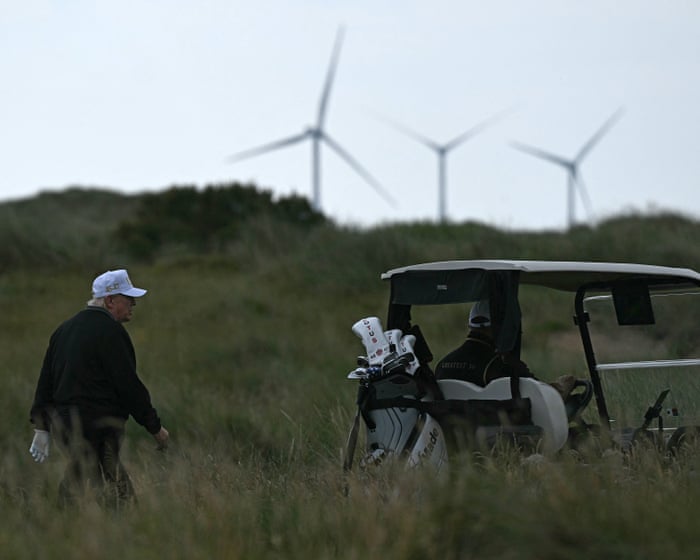Tim Davie has condemned the “weaponisation” of criticism against the BBC, speaking to staff after his unexpected resignation as director general. Thanking employees for their support, Davie reassured them that the narrative about the organization “won’t solely be shaped by our critics” following a week of accusations from senior politicians about systemic bias in its reporting.
“I hear everyone when we need to be clear and defend our journalism,” he stated. “We operate in a unique and high-pressure environment. I see the free press under strain. I witness the weaponisation. I believe we’re fighting for our journalism, and I’m truly proud of our work.
“I’m fiercely proud of this organization. It faces tough times, but it consistently produces quality work. That speaks for itself—louder than any newspaper or any weaponised criticism. We represent the best of what society should be, and that will never change.”
This comes after days of criticism directed at the BBC, stemming from a memo by Michael Prescott, a former independent external adviser to the BBC’s editorial guidelines and standards committee, who left his position in the summer. The memo highlighted an edited version of a Donald Trump speech on Panorama, which Davie and others consider a serious breach. Prescott’s allegations were leaked to the Daily Telegraph and reported over the past week.
Right-wing figures like Boris Johnson, Nigel Farage, and Liz Truss have used these findings to attack Davie, the licence fee, and the future structure of the BBC.
“Others want to control our story,” Davie remarked. “The incredible work we do locally and globally is invaluable. We’ve made mistakes that have cost us, but we must fight for our mission, and I’m immensely proud of it. Don’t let anyone convince you we’re not doing a fantastic job. We’ve actually increased trust, so let’s share that narrative.”
Davie acknowledged that errors were made and that taking responsibility contributed to his decision to step down, along with the cumulative toll of the role. He admitted to having “a few barnacles” from handling various challenges during his leadership over the past year.
“We just need to focus on our work, stay strong, which is tough when the noise around us is overwhelming, but others want to dictate our story,” he said. “We can absolutely carry on, and I believe a successor can do that.”
He insisted the job isn’t “impossible” despite political pressures, adding, “I wouldn’t change a thing.”
Many BBC staff recognize the genuine failings outlined in Prescott’s memo but are also worried about the political influence. They highlight the role of Robbie Gibb, Theresa May’s former communications chief, who was appointed to the BBC’s board under Boris Johnson’s premiership. Insiders say Gibb advocated for Prescott’s appointment as external adviser and pressured the BBC’s editorial leadership over the memo’s findings.
Allegations of a coordinated political effort from the right to pressure the BBC have been denied, with Johnson refuting any such suggestions.Robbie Gibb dismissed the accusation as “complete and utter nonsense.” The BBC clarified that Gibb was just one of four panel members involved in Prescott’s appointment and one of 13 board members overall. Prescott emphasized in his letter that his criticisms were not driven by any political agenda.
BBC Chair Samir Shah addressed staff, dismissing the notion of a right-wing plot to undermine the BBC from within as far-fetched. He acknowledged that board members hold diverse opinions, stating, “I wouldn’t want a board that’s guilty of groupthink. The opposite of groupthink is having different perspectives, which makes my role as chair challenging in seeking consensus. But it’s crucial that the board embraces a diversity of views.”
Frequently Asked Questions
Of course Here is a list of FAQs about Tim Davie and his comments on the weaponisation of criticism against the BBC with clear and concise answers
General Beginner Questions
1 Who is Tim Davie
Tim Davie is the DirectorGeneral of the BBC which means he is the chief executive and editorinchief of the British Broadcasting Corporation
2 What did he mean by the weaponisation of criticism
He meant that criticism of the BBC is sometimes used not for constructive feedback but as a deliberate political or ideological tool to attack and undermine the organizations credibility and independence
3 Why is he defending the BBC
As the head of the BBC it is his primary role to protect the corporations integrity independence and reputation especially when he believes it is facing unfair or politically motivated attacks
4 What kind of criticism is he talking about
He is likely referring to intense often politically charged criticism from various sidesincluding government officials political parties and partisan mediaaccusing the BBC of bias being out of touch or questioning its public funding model
Advanced Detailed Questions
5 Whats the difference between normal criticism and weaponised criticism
Normal Criticism Fair specific feedback aimed at helping the BBC improve its reporting such as pointing out a factual error
Weaponised Criticism Broad often vague accusations of systemic bias used to pressure the BBC influence its editorial stance or build a case for reducing its funding or changing its fundamental structure
6 Why is the weaponisation of criticism a problem
It threatens the BBCs editorial independence If the BBC constantly fears being attacked for its reporting it might shy away from covering difficult or controversial stories which undermines its core mission as a public service broadcaster
7 Can you give an example of what this might look like in practice
A political party might consistently label any BBC reporting that questions its policies as biased or antiBritish regardless of the storys accuracy This is done to rally their supporters and create public pressure on the BBC to be less critical
8 What is the BBCs official position on impartiality
The BBC has a fundamental commitment to impartiality in its reporting Its editorial guidelines require journalists to be fair balanced and



